The idea of a freelance writing career can open endless possibilities. The freedom to select your assignments, establish your schedule, and work from any location is very appealing.
However, with all the choices available, How do you determine which freelance writing jobs are the most suitable for you? Suppose you’re beginning your career or want to expand your writing portfolio.
In that case, this thorough guide will walk you through the best freelance writing jobs that are available to freelancers and give concrete tips to help you get started and grow in your writing career as a freelancer.
Understanding Freelance Writing
What is Freelance Writing?
Writing freelance involves writing content for a variety of clients on a project-by-project basis.
In contrast to traditional jobs, freelance writers are able to pick their projects, create their schedules, and work from anywhere. This freedom makes freelance writing a desirable career option for aspiring writers.
Why Choose Freelance Writing?
- Flexibility: Work from home, choose your schedule, and pick projects that appeal to you.
- Numerous opportunities: From copywriting and blogging to technical writing and grant writing, The possibilities are endless.
- Potential for Income: With the right knowledge and strategies, freelance writing can be a lucrative job.
Top 10 Best Freelance Writing Jobs
The world of freelance writing can seem a challenge due to the variety of jobs available. In order to help you make educated choices, here’s an in-depth review of the top freelance writing jobs that you can explore.
You might want to discover our article about the Top 11 Best Freelance Writing Websites.
Content Writing
Overview
Content writing involves the creation of engaging and informative blog posts, articles, and web-based content for companies and organizations.
This job is perfect for those who love researching and providing useful information to their readers.
Why Content Writing?
- High-demand companies require regularly updated content to keep their presence on the internet.
- Variation: Work across various industries and subjects.
- Skills Development: Enhance writing and research skills.
Getting Started
- Create Portfolio: Create samples of articles on various subjects.
- Join Content Platforms: Websites such as Contently, as well as ClearVoice, connect writers to customers.
- Network: Engage with potential clients via LinkedIn and other forums for industry.
Copywriting
Overview
Copywriting is the art of crafting compelling and engaging content that is geared toward generating sales or inciting certain steps. This includes writing ads and sales pages, emails, campaigns, and descriptions of products.
Why Copywriting?
- High Potential for Earning: Copywriters typically have higher rates due to their direct effect on sales.
- Creative Freedom: Crafting messages that influence consumer behaviour is difficult but rewarding.
- Diverse Projects We work with a variety of clients, ranging from established brands to startups.
Getting Started
- Learn the fundamentals: Understand the fundamental principles of persuasive writing and marketing.
- Create Examples: Develop mock ads or sales pages to show your abilities.
- Business Pitch: Contact businesses directly or sign up to platforms such as Copyhackers to search for opportunities.

Blogging
Overview
Blogs are posts that are regularly written on a particular topic or a range of issues. Bloggers typically monetize their content via affiliate marketing, ads, and sponsored posts. They also make money by selling goods or services.
Why Blogging?
- Establish Credibility: Position yourself as a knowledgeable authority in your specific field.
- Multiple Income Streams: You can diversify your earnings by using different monetization methods.
- Creative Expression: Share your thoughts, experiences, and information with a worldwide audience.
Getting Started
- Select a niche: Focus on a subject you’re passionate about and are knowledgeable about.
- Create a Blog Make use of platforms such as WordPress or Blogger to build your blog.
- Create high-quality content: Consistently publish engaging and informative posts to entice and keep readers.

Technical Writing
Overview
Technical writing involves the creation of concise and clear documentation for difficult topics. This could include user manuals, whitepapers, product guides, and technical reports.
Why Technical Writing?
- Specialized Skills: High demand in the fields of engineering, technology, and healthcare.
- Lucrative Rates The specialized expertise can lead to better pay.
- Career Development: Opportunities to work with the top companies and to innovate in documenting practices.
Getting Started
- Gain technical knowledge: Familiarize yourself with the field you’d like to write for.
- Learn writing skills: Learn to simplify complicated information for the general public.
- Get Certifications: Courses from Coursera or Udemy can help you establish your credibility.

Grant Writing
Overview
Grant writing involves the creation of proposals for the funding needed by educational institutions, non-profit organizations, and other organizations. It requires a deep understanding of the goals of the organization and the needs of the funder.
Why Grant Writing?
- Effective Task: Help organizations accomplish their goals by securing the funds they need.
- Expertise in a Niche: Develop specific skills that are highly sought-after.
- Demand is steady: Educational and non-profit institutions constantly require grant writers.
Getting Started
- Know Grant Writing: Learn the fundamentals of Grant Writing with online courses and other resources such as Grant Writing 101.
- Create Portfolio: Create examples of grant proposals to show your talents.
- Meet with non-profit organizations: Connect to non-profit organizations that require grant writing assistance through platforms such as Idealist.
Ghostwriting
Overview
Ghostwriting is the process of creating content that is attributable to another individual. This can include articles, books, speeches, and blog posts.
Why Ghostwriting?
- Creative Collaboration: Work closely with clients to bring their ideas to reality.
- Diverse Projects: Engage in different formatting and styles of writing.
- Confidentiality: Maintain privacy and discretion, encouraging confidence with your clients.
Getting Started
- Develop a variety of writing Skills: Adapt your style of writing to match different tones and voices.
- Join a network of Professionals and Authors: Connect via LinkedIn writing groups and events in the industry.
- Join ghostwriting platforms. Websites like Reedsy and Ghostbloggers can assist you in finding gigs for writing.

SEO Writing
Overview
SEO (Search Engine Optimization) writing is the method of creating content that ranks well by search engines, such as Google.
It is the process of using meta descriptions, keywords, and various SEO techniques to increase the visibility of content and boost organic traffic.
Why SEO Writing?
- High-demand companies place a great emphasis on SEO in order to boost their visibility on the internet.
- Skills Development Learn important information about SEO and strategies for digital marketing.
- Performance-Based Reward: Your success is measured by traffic metrics and ranking.
Getting Started
- Learn the basics of SEO: Understand the importance of conducting keyword research on SEO on the web and optimizing content using Moz and other resources.
- Use SEO Tools Learn about tools like Ahrefs, SEMrush, and Yoast.
- Make SEO-optimized content. Learn to write articles that employ SEO best practices without sacrificing the ability to read.

Social Media Writing
Overview
Social media writing is the process of creating appealing and concise content for platforms such as Facebook, Twitter, Instagram, LinkedIn, and more. This includes captions, posts, advertisements, posts, and social media-related campaigns.
Why Social Media Writing?
- Dynamic Environment: Stay current with the most recent technologies and updates to the platform.
- Engagement Opportunities: Directly engage with audiences and create communities.
- Creative Freedom: Experiment with different formats of content and designs.
Getting Started
- Learn about Every Platform: Learn the distinct characteristics and preferences of various social media platforms.
- Make a Social Media Portfolio: Showcase your ability to write captivating web-based content for social media.
- Provide Services to businesses: Approach local businesses or join freelance platforms to search for writing opportunities on social media.
Medical Writing
Overview
Medical writing involves the creation of content related to the pharmaceutical and healthcare industries. The writing includes research papers, medical blogs, regulatory documents, and other educational resources.
Why Medical Writing?
- Specialized Fields: There is a huge demand for accurate and reliable medical information.
- Lucrative Rates The specialized expertise often results in higher wages.
- Effective Task: Contribute to the spread of vital medical details.
Getting Started
- Learn about Medical Knowledge Consider getting certifications or taking classes in medical writing with organizations such as the American Medical Writers Association.
- Create a specialized Portfolio: Create examples that demonstrate your capacity to write complex medical information clearly and precisely.
- Connect to Healthcare Organizations: Connect with healthcare professionals as well as other institutions that might require assistance with medical writing.
Creative Writing
Overview
Creative writing is the process of creating scripts, stories, novels, poetry, and other creative content. It lets writers show their creativity and craft compelling stories.
Why Creative Writing?
- Creative Expression: the freedom to create and explore unique stories and characters.
- Multiple Chances: From publishing novels to writing for television and film.
- Personal Fulfillment: Enjoy the satisfaction of bringing your imaginative ideas to reality.
Getting Started
- Develop Your Craft: Take creative writing courses or join workshops to hone your skills.
- Create Portfolios: Compile examples of your work, like small stories or excerpts of bigger projects.
- Seek Publishing Opportunities: Submit your work to literary magazine publishers or look into the possibility of self-publishing.
How to Start a Freelance Writing Career
The process of launching the path of freelance writing can be thrilling and difficult. To ensure your success, follow these key steps:
Step 1: Identify Your Niche
Why Choosing a Niche Matters
The selection of a niche can allow you to make a mark in a crowded market and lets you focus and become an expert in your chosen field. It also enables you to concentrate your marketing efforts to get the right clients.
How to Choose Your Niche
- Review Your Strengths and Interests: You should think about subjects you are interested in and areas in which you have experience.
- Utilize tools such as Google Trends and Ahrefs to determine hot and popular topics.
- Examine the competition. Find a balance between high demand and a manageable level of competition. Find niches in which you can provide unique value.
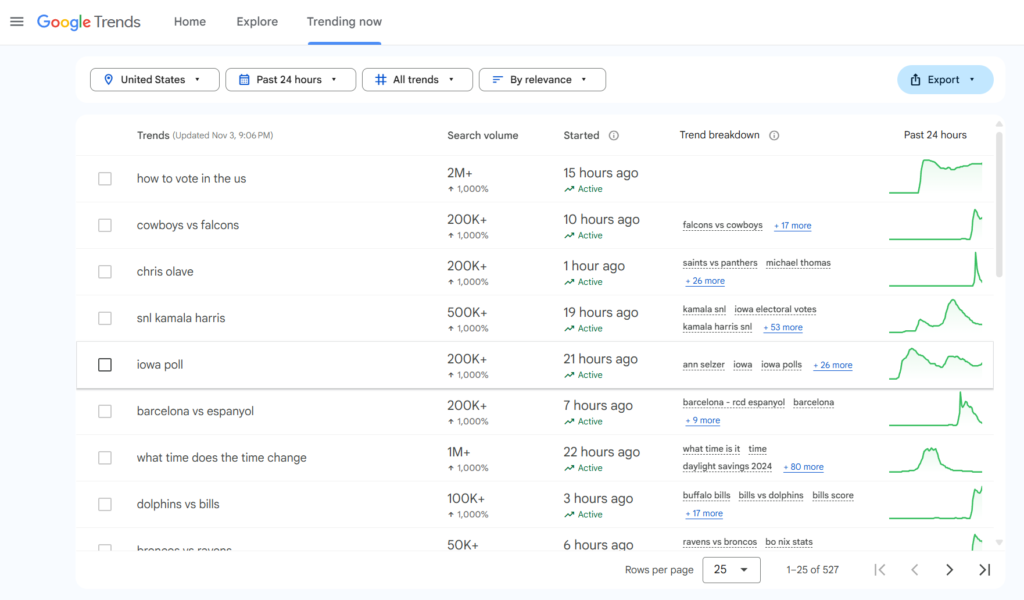
Step 2: Build a Strong Portfolio
Why Your Portfolio Matters
Your portfolio highlights your best work and showcases your skills to prospective clients. It’s your resume that highlights your talents and experiences.
Creating an Effective Portfolio
- Beginning with Specific Parts: Make examples of articles within your chosen area if you haven’t published your work up to now.
- Include published work: As you begin getting gigs, add the articles to your portfolio.
- Showcase Variety Incorporate different kinds of writing like blog articles, posts, or examples of copywriting.
- Highlight Your Top Work Concentrate on the quality of your work over the quantity in order to create an impression.
Step 3: Find Your First Clients
Where to Look for Freelance Writing Jobs
- Freelance Marketplaces: Platforms such as Upwork, Freelancer, and Fiverr connect freelancers with customers.
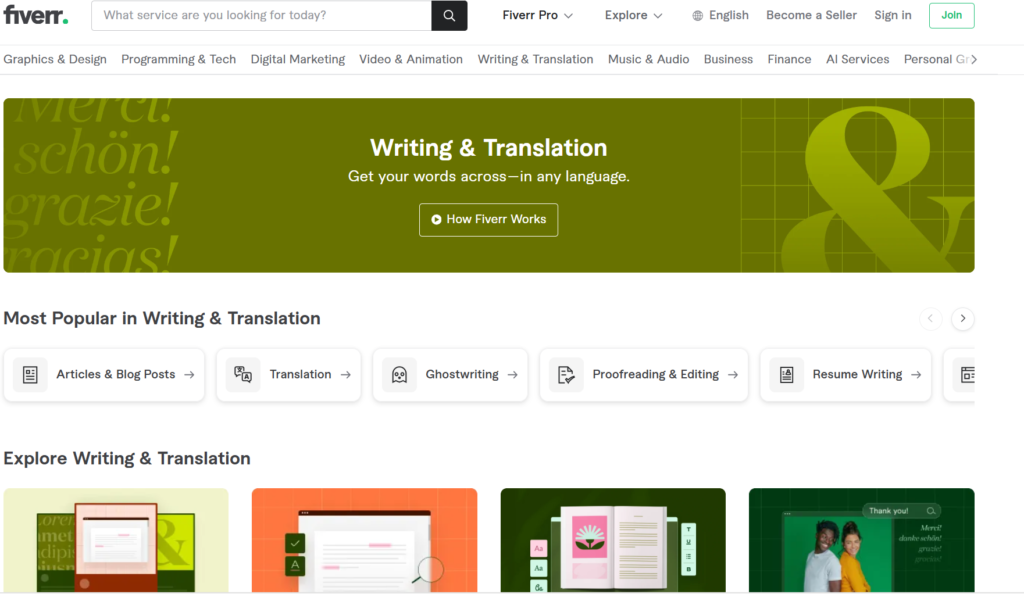
- Job Boards: Visit websites such as ProBlogger, Freelance Writing Jobs, and Contena.
- Networking: Leverage LinkedIn and join writing groups to network with prospective clients.
- Cold Pitching: Reach out directly to companies or websites in your field by delivering a specific pitch.
Crafting the Perfect Pitch
- Customize It: Contact the client’s name, and then mention the specifics of their company.
- Highlight Your Worth: Explain how your expertise can be beneficial to your projects.
- Include Examples: Provide your portfolio with links or attach writing examples.
- Be concise: Keep your message clear and concise.
Step 4: Set Your Rates
Determining Your Worth
The process of setting your rates involves taking into account factors such as your experience with the complexity of the project and the market rate.
Pricing Models
- Per Word: A common practice in writing freelance, rates between $0.05 to $1 for each word, based on experience and niche.
- Per Hour: Great for projects with a vague scope. Use tools such as Payscale to study market rates.
- Per Project Pricing at a flat rate is a good option for clearly defined projects, as it provides clarity for both your client.

How to Raise Your Rates Over Time
- Provide High-Quality Work Invariably delivering quality work justifies higher prices.
- Enhance Your Skill Set: Learning new skills or specializing can boost the value of your skills.
- Create a Strong reputation: Positive reviews and a steady support rate for your portfolio.
- Be clear: When increasing rates, explain the added value you can provide and give clients sufficient notice.
Step 5: Market Yourself Effectively
Building Your Brand
Marketing yourself is essential to attracting clients and building an effective writing career as a freelancer. Your image reflects who you are as an author and also how you represent your self prospective clients.
Strategies to Market Yourself
- Create a beautiful website that displays your range of offerings with testimonials, testimonials, and contact details using platforms like WordPress or Squarespace.
- Utilize Social Media Utilize LinkedIn, Twitter, and Instagram to show off your work, connect with industry experts, and connect with potential customers.
- Start Blog: Blogging about subjects that are relevant to your field not only displays your expertise but also boosts the SEO of your site.
- Network: Attend virtual webinars and events and join online communities that are related to your area of expertise.
- Email Marketing: Collect email addresses of users of your website and then send out periodic newsletters that include information, tips, and links to your latest work.
Optimizing Your Online Presence
- SEO: Optimize your blog posts and websites to rank well with search engines by including relevant keywords, generating high-quality content, and establishing backlinks.
- Consistent branding: Use consistent colours as well as fonts and images across all platforms to build a well-known brand.
- Professionalism: Ensure your site is free of errors, simple to navigate, and offers users a smooth experience.
Tools and Resources for Freelance Writers
Essential Tools to Enhance Your Writing
- Grammarly: A writing assistant powered by AI that assists you with punctuation, grammar, and writing style. Grammarly ensures that your writing is clean and free of errors.
- Hemingway Editor: A tool that focuses on complex sentences and suggests simple alternatives, which improves the readability of your content. Hemingway Editor is great for making your content concise and clear.
- Scrivener is a powerful tool for writing and organizing long-form content such as research papers and novels. Scrivener helps you manage large writing projects effectively.
- Google Docs: A collaborative writing platform that permits instant editing and sharing. Google Docs is perfect for working with clients and getting feedback.
- Trello is a tool to manage projects that can help you to manage timelines and projects. Trello helps keep your writing tasks on schedule and ensures that you meet deadlines that clients set.
- Canva is a program for graphic design that lets you make illustrations for your writing. Canva enhances the written content by providing stunning images and photographs.
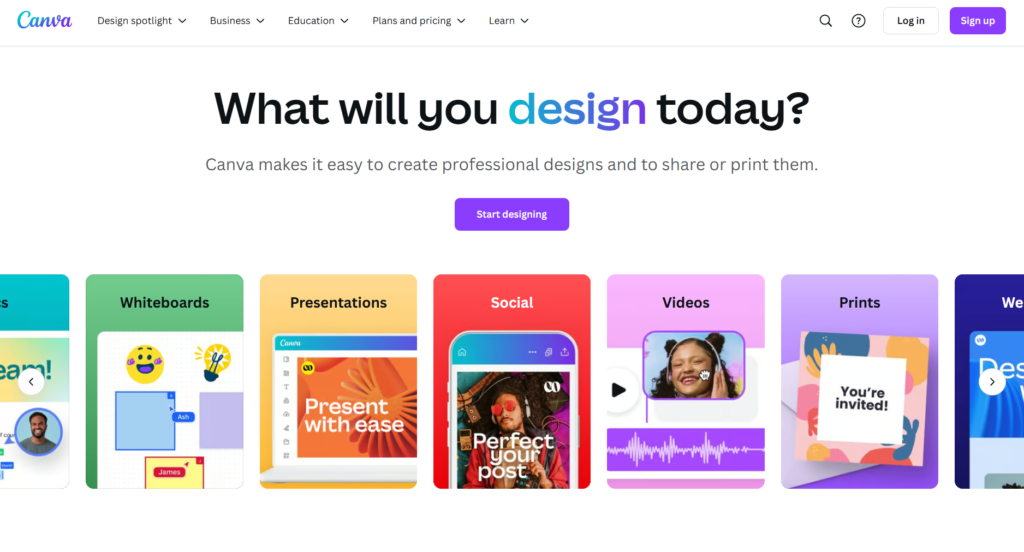
Learning and Development
- Online Courses: Platforms such as Coursera, Udemy, and Skillshare offer classes on a variety of aspects of SEO, writing, and online marketing.
- Writing Communities Join forums and communities like Reddit’s r/freelanceWriters and Absolute Write to meet fellow writers, share your experiences, and receive support.
- Read books like ” On Writing” by Stephen King and “The Elements of Style” by Strunk and White to improve your writing abilities.
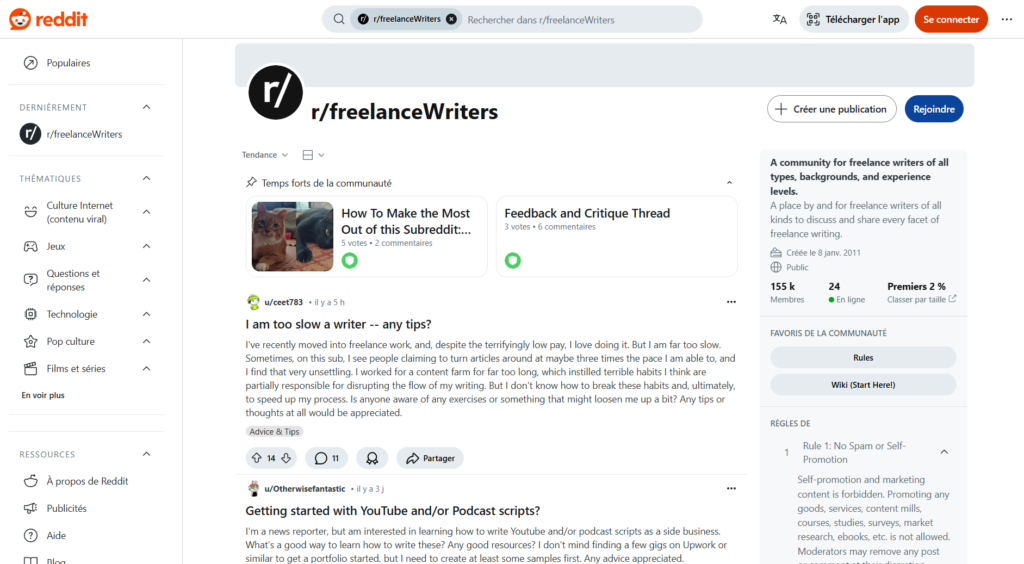
Overcoming Common Challenges
Navigating the Freelance Landscape
Freelance writing has the same set of difficulties, but with the proper strategies, you will be able to overcome them and succeed in your profession.
Common Challenges and Solutions
- Finding Consistent Work:
- Solution: Diversify your customer base and make use of different platforms to find jobs. Establishing long-term relationships with your clients can result in repeat work.
- Managing Finances:
- Solution: Track your earnings and expenses with accounting software such as QuickBooks or FreshBooks—reserve money for taxes and unanticipated costs.
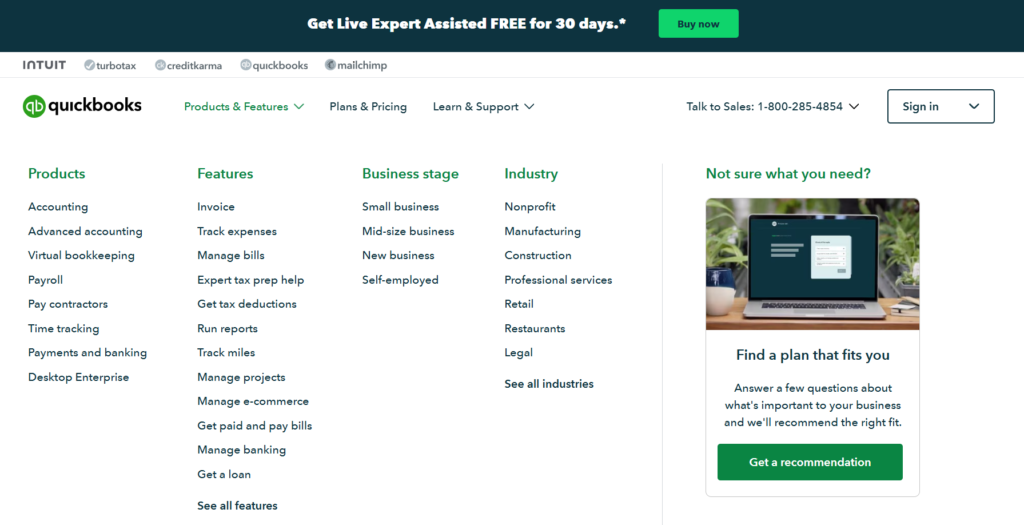
- Rejection and the Handling of it:
- Solution: Reframe your rejection as a learning opportunity. If you are able, seek feedback and utilize the feedback to enhance your pitch and writing.
- Maintaining Work-Life Balance:
- Solution: Establish clear boundaries between personal and work time. Create a designated workspace and stick to a strict schedule.
- Staying Motivated:
- Solution: Set reasonable targets, be proud of your accomplishments, and network with other freelancers for help and motivation.
Conclusion
The process of establishing your writing career as a freelancer is an exciting adventure that is full of opportunities and difficulties.
By seeking out the best freelance writing jobs, discovering your specialization est, abolishing an impressive portfolio idea, notifying your first client’s est, abolishing reasonable rates, and promoting your services effectively, you can be an instant success.
Remember that everyone who is a successful freelance writer began from where you are today. Be persistent, continue to learn, and never be scared to take risks.
Your love of writing and commitment to the craft will help pave the way for a rewarding and lucrative freelance career.
Are you ready to take the next step? Start by identifying your target market and composing some samples of your writing today.
Don’t forget to read our guide on How to Start a Successful Freelance Writing Career guide for more detailed information on how to begin your freelance career!




Comments 7